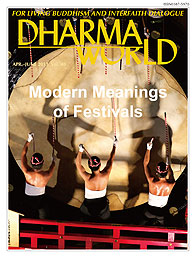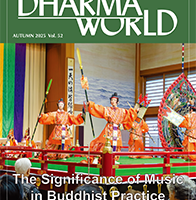April-June 2013, Volume 40(PDF)
Modern Meanings of Festivals
Festivals are defined as certain days or periods of time set aside to commemorate, ritually celebrate or re-enact, or anticipate events or seasons (agricultural, religious, or socio-cultural) that give meaning to, and promote cohesiveness between, individuals and their community.
In Japan, because of rapid industrialization and urbanization in the late twentieth century, local communities rich in traditional culture have become homogenized. Material abundance has made life more comfortable, but the market economy has weakened the unique cultures of local communities and damaged the natural environment on which they have depended.
Most Japanese have not lost their love of festivals, however. Festivals are a unique occasion that reminds us of our local identity, which we tend to forget in our daily lives. In northeastern Japan, festivals also have served as occasions to reunite people for reconstruction after the devastation caused by the massive earthquake and tsunami in March 2011 and pay tribute to the victims.
In other countries, too, we think that the role of festivals in preserving the local identity can be very important. Though many festivals have become tourist attractions, these events can still enhance the self-identification of local communities. Indeed, since many festivals have sacred origins, religion can be central to promoting the unifying role of festivals in contemporary society.
In our time, when in many countries traditional models of family and community life are breaking down and human relationships have weakened, we hope to shed light on festivals and their significance for society.























































































